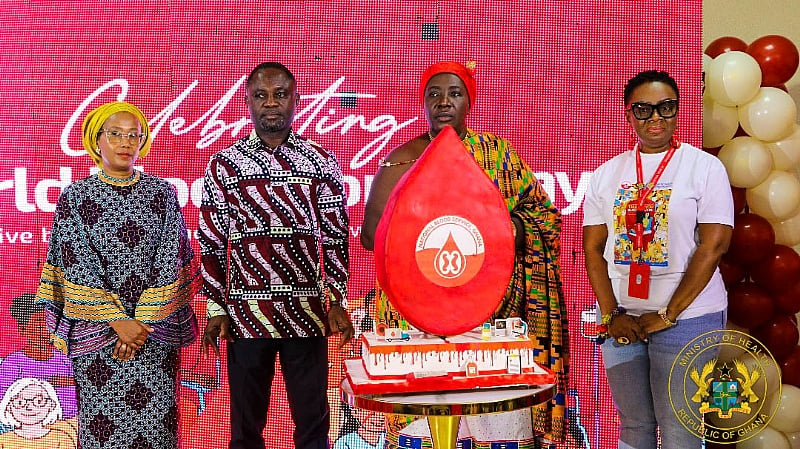Ghana’s Minister for Health, Mr. Kwabena Mintah Akandoh, has reaffirmed the government’s dedication to strengthening the nation’s blood supply system, emphasizing its critical role in the overall healthcare improvement strategy under the Mahama Cares initiative. Speaking at the 2025 World Blood Donor Day commemoration, themed “Give Blood, Give Hope: Together We Save Lives,” the Minister underscored the government’s commitment to making blood transfusions more accessible and affordable for all citizens. He revealed that active discussions are underway to explore ways to alleviate the financial burden on patients requiring blood transfusions, including the possibility of eliminating blood processing fees. This move would represent a significant stride towards equitable access to this life-saving resource. He further appealed to all eligible Ghanaians between the ages of 17 and 60 to embrace the spirit of altruism and become regular blood donors, contributing to a sustainable national blood supply. To bolster this national endeavor, he urged both public and private sector institutions to organize at least two blood donation drives each year, fostering a culture of regular donation and ensuring a readily available blood supply for those in need.
Dr. Shirley Owusu-Ofori, Chief Executive Officer of the National Blood Service, highlighted Ghana’s notable progress in 2024, with the collection of 187,280 units of blood, achieving nearly 99% of the national target. This accomplishment signifies a substantial step towards self-sufficiency in blood supply. She also noted the significant increase in the processing of collected blood into various components, with over 45,000 units processed to meet the specific needs of patients, ensuring timely access to safe and compatible blood products for various medical conditions. This move towards component processing not only optimizes the use of donated blood but also caters to the diverse requirements of patients, enhancing the efficacy of transfusions.
Despite these advancements, Dr. Owusu-Ofori acknowledged the persistent challenges hindering the optimal functioning of the national blood service. Key among these challenges is the limited infrastructure for blood donation, including an insufficient number of mobile collection vans, which hinders access for potential donors, especially in remote areas. Additionally, she pointed out the funding gaps hampering the development of a comprehensive digital Blood Information Management System, a crucial tool for efficient blood inventory management, donor tracking, and ensuring the safety and traceability of blood products.
To address these infrastructure and technological limitations, Dr. Owusu-Ofori advocated for the establishment of dedicated Regional Blood Centres across the country. These centres would serve as hubs for blood collection, processing, and distribution, facilitating a more decentralized and efficient system. She also emphasized the need for a robust and sustainably funded National Blood Donor Programme to ensure continuous engagement and recruitment of voluntary, unpaid blood donors, the cornerstone of a safe and reliable blood supply. This program would encompass comprehensive public awareness campaigns, donor education, and recognition initiatives to foster a culture of voluntary blood donation.
As part of the World Blood Donor Day celebrations, a series of nationwide activities were planned, including organized blood drives, public education campaigns, and media outreach efforts. These initiatives aimed to encourage regular blood donations and raise public awareness about the importance of safe blood transfusions and the life-saving role of voluntary donors. The emphasis was on engaging the youth and promoting a sense of responsibility towards contributing to the national blood supply, ensuring its sustainability for future generations.
The 2025 World Blood Donor Day served as a platform to acknowledge the selfless contributions of voluntary, unpaid blood donors and emphasize the critical need for increased public participation in blood donation, particularly among young people. The theme, “Give Blood, Give Hope: Together We Save Lives”, encapsulates the collective responsibility of individuals, communities, and institutions in ensuring a safe and adequate blood supply for all. By highlighting both the successes and challenges within Ghana’s blood transfusion system, the event aimed to galvanize national efforts towards achieving sustainable self-sufficiency in blood supply and ensuring that no life is lost due to the lack of this essential resource.


